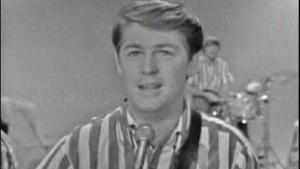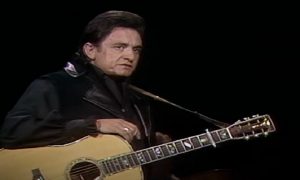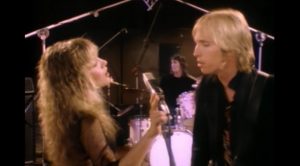Vintage AC/DC vs. 2020 AC/DC: What’s The Difference?

AC/DC live in 1979 - AC/DC / Youtube
When it comes to hard rocking goodness, AC/DC is sure to bring the house down with their big power chords and soaring vocal lines. Since its establishment in 1973, the Aussie rock act has been a strong contender in the grittier spectrum of rock music. It also helped that AC/DC went through numerous lineup changes at the beginning of its career in order to find the perfect fit for the music they played.
Comprised of the Young brothers, Angus and Malcolm, along with Bon Scott, Phil Rudd, and Mark Evans (who was later replaced by Cliff Williams), they took the stage by storm with the release of their High Voltage and T.N.T. records in Australia – these two records comprised the High Voltage released in the US and UK subsequently. While the band pretty much had its own sound going for it, AC/DC stresses out how important Bon Scott’s influence on the group was.
Malcolm proves this, saying, “They thought we’d be a good pop-rock type band, play a bit of rock’n’roll and a bit of pop. That’s how we started but, then, when Bon came into the picture six months later, we had the key to go straight to rock’n’roll because he could deliver it, and he had his own style. Bon influenced the band to go more into the rock’n’roll thing, which we’d always liked anyway. But when you’re kids, you’ll do whatever it takes to get signed up and get on the road. We were really happy at the thought of just working in clubs for the rest of our lives because it was better than having day jobs, and you could travel. We thought, ‘If we could accomplish that, then we’ve got a life.’ Everything else became a bonus after that.”
AC/DC’s career was split into two distinct eras – the Bon Scott years (1974-1980), and the Brian Johnson years (1980-present). Arguably, it was Scott’s pioneering energy that cemented AC/DC’s sound in place. During the run of the band with Scott as the frontman, their straight, no-nonsense rock sound was a fresh take on the genre as opposed to the overly cheesy art and arena rock that was prevalent during the era. Scott’s voice had a fuller body as opposed to Johnsons’, which complemented the heavy guitars of the Young brothers and the driving rhythm section of Evans and Rudd.
Once again, it was Scott’s diligence that drove the band to be meticulous in making music. Malcolm notes, “Bon would be the first one up in the morning, no matter what state he went to bed in. “You’d get a cup of coffee by your bed. ‘Come on, time to get up and get into practice.’ He was driving us on a lot.” Angus added, “When it came to rock’n’roll, he was always deadly serious. He’d be the first to tell you, ‘No, that’s not working,’ or, ‘Go away and write something.’ Sometimes he’d get stuck and he’d go down to a club for the night and get wasted but, as Mal said, he was there first thing in the morning, putting these lyrics together.”
By the time of Scott’s untimely death in 1980, Brian Johnson assumed his position. He was already being eyed by Scott way before, noting his excellent performance with the Geordies. But it also marked a sudden shift in the band’s “mood” when it came to their sound, even if it wasn’t a permanent thing.
As a tribute and comeback effort, 1980’s Back In Black contained some of the edgiest rock AC/DC has ever dished out since they rose to prevalence. Whether it was motivated by the death of Scott or a planned shift in style, it doesn’t matter. AC/DC surely rose to the occasion with a sharper, more aggressive approach. Brian Johnson also had a higher voice in comparison to Scott’s, giving his era an almost otherworldly feel to it – nobody could do vocals as he did. This was obviously a point of contention for AC/DC fans on either side of the frontman fence – there were those who preferred Scott’s power while others liked the shriekiness of Johnson.
It can be noted that AC/DC’s time with producer Mutt Lange has been instrumental in polishing the band’s sound as they moved forward. Lange had quite the ear for what fit and what didn’t, with Angus saying, “He had good ears for sound, and he was meticulous about getting the guitars and drums right. He would zero in [on things] and he was brilliant with that. He was good on the vocal side, too. Even Bon was impressed. Normally, when Bon was singing, we’d go ‘That’s good enough for rock’n’roll’ but Mutt would say things like, ‘Spread it a bit.’ He brought that [precision] to things.”
Lange was also one with the band in keeping their ambitions grounded, which meant making music that they could actually pull off onstage. Both parties liked the simplicity of where it was going, which was beneficial in AC/DC’s formula to stick with simple yet huge chordage and a head-bopping rhythm that frankly, no one else could pull off. Not even now, as they’ve released the sneak peek for their upcoming album, Power Up.










